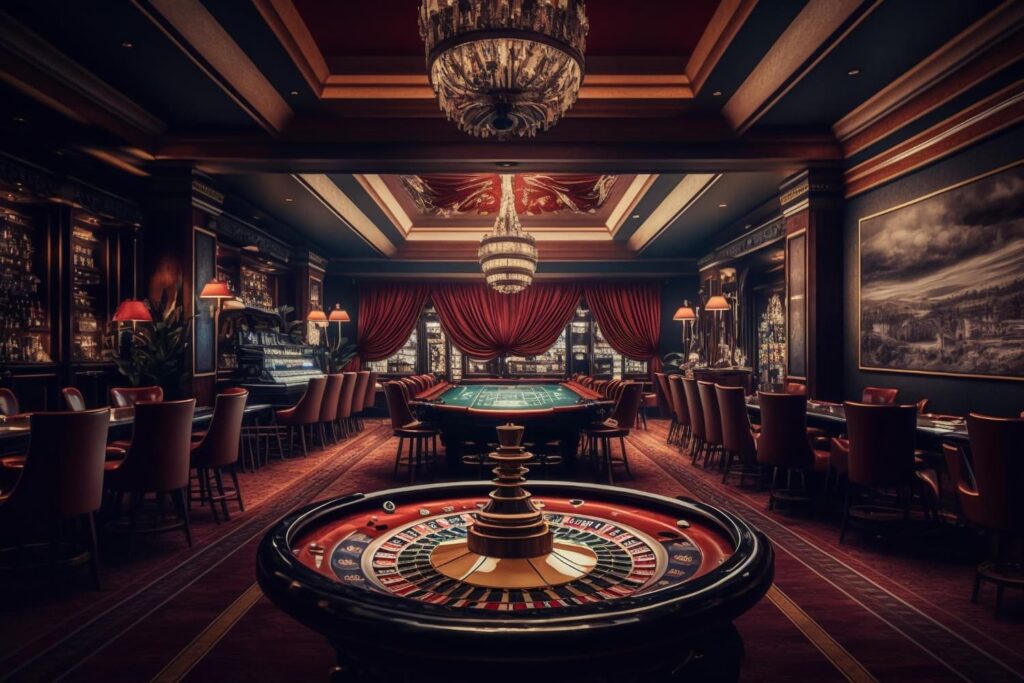A Cultural Impact of Gambling Slots Across the World
Across the globe, the allure of slot machines has enchanted millions, overcoming cultural divides and appealing to diverse audiences. From the bustling casinos of Vegas to the colorful gaming halls of Macau's gaming centers, these fascinating machines have become emblems of excitement and suspense. The rotating reels and bright designs draw players into deeply engaging experiences, creating a distinct blend of chance and amusement that connects with people from various backgrounds.
As these games evolve, their effects extends beyond mere gambling; they influence mainstream culture, fuel art, and reshape community interactions. Whether it's through films depicting of life in casinos or the rise of online slots that bring the casino experience to the comfort of home, the importance of slot machines continues to grow. Exploring this trend reveals not just the systems of play, but also the deeper connections they create within communities and their role in the broader tapestry of leisure activities across the world.
History of Casino Slots
The roots of casino slot machines can be traced back the late 19th century with the creation of the initial mechanical slot machine. In 1887, Charles Fey, a inventor from California, created the first mechanical slot machine, which featured three spinning reels and a simple design with icons such as horseshoes and card symbols. This machine provided players a chance to win coins, laying the foundation for what would become a global gaming sensation.
As the fame of casino slots increased, various innovations surfaced throughout the initial twentieth century. By the 1900s, numerous producers began making their versions, enhancing the machines with additional features and more intricate systems. These early machines became a staple in bars, taverns, and ultimately started to make their way into casinos. By the decade of the 1960s, the mechanical slot machine was more refined with the introduction of electronic parts, leading to more diverse gameplay and increased player interaction.
The 1980s marked a major turning point when video technology was added into casino slots. This innovation allowed for more intricate graphics, audio, and storylines, attracting a broader audience. The fusion of stunning visuals and engaging gameplay changed gambling machines into a major attraction in casinos around the globe. As a consequence, slots evolved from simple machines into elaborate entertainment units, reflecting shifting cultural preferences and technological advancements.
Cultural Variations of Slot Games
Gambling slot games have evolved to showcase diverse traditions along with traditions from the locales in which these games are enjoyed. As an example, in Japan, such as, pachinko machines merge aspects from pinball alongside conventional slot machines, producing a distinct gaming experience which is thoroughly rooted in Japanese entertainment culture. These models frequently include well-known anime characters as well as concepts, showcasing the gaming with pop culture in Japan.
On the other hand, in the US, slot slots often styled based on famous cinematic works, celebrities, as well as recognizable imagery from U.S. culture. Such a trend demonstrates a propensity toward exalt as well as commercialize popular culture, making the gambling experience understandable among players. The vibrant designs and effects aim so as to generate excitement as well as draw people into the gaming environment, highlighting American innovation within entertainment and technology.
In European regions also possess unique distinct strategies to slot machines. As an example, in the UK, for example, traditional fruit machines found in pubs and arcades mirror local likes toward traditional game styles. These machines typically emphasize simple aesthetics while also straightforward gameplay, which connect well among players seeking cherish a fond gaming experience. This kind of local diversity emphasizes how societal factors shape the development as well as appeal in casino slot machines throughout multiple areas in the planet.

The Future of Casino Slots
As tech continues to evolve, the future of casino slots appears promising and exciting. Advancements in gaming technology, such as VR and AR, are likely to redefine how players interact with slots. Picture stepping into a digital gaming environment where players can engage with their surroundings more immersively, making the act of spinning the reels more exciting and enthralling than before. XO88 This transition could also draw in a younger demographic, fostering a fresh wave of casino gaming.
Moreover, the incorporation of AI and big data will enhance customization in casino slots. Players can look forward to games tailored to their preferences, as AI analyzes their patterns and actions. This tailoring not only makes the gaming play more fun but also encourages player retention, as casinos strive to meet individual player needs. Upcoming slot games will likely feature more engaging narratives and rich content, pushing the limits of traditional gaming.
Finally, the rise of mobile gaming will continue to transform the future of casino slots around the world. As more players opt for smartphones and tablets for entertainment, casino operators will focus on optimizing their games for mobile platforms. This convenience allows for more accessible play, with players able to enjoy their favorite slots whenever and any place. As the global gaming market expands, the advancement of casino slots will play a vital role in attracting new players and maintaining the excitement of existing fans.
